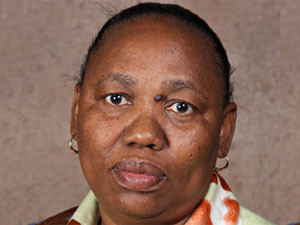The number of learners who passed mathematics and physical science - both key subjects for a career in ICT - improved in 2012, providing hope that the sector could benefit from more people choosing careers in ICT.
ICT is a sector in which skills are in short supply, and supply is not close to meeting demand. According to CareerJunction's latest index, information technology is the second-highest sector in terms of demand, but also the second-largest one in which employment takes place.
The rise in both mathematics and science passes gives some hope of more ICT processionals entering the industry, although the number of students who passed is not sufficient to solve the sector's dilemma, says Inforcomm CEO Andile Tlhoa'ele.
Doing better

Basic education minister Angie Motshekga presented the results for the Class of 2012 - the so-called "born frees" - late yesterday afternoon. In total, 511 152 matrics wrote the national senior certificate, of which 73.9% passed.
Last year, 496 090 wrote, with 70.2% passing. Of those who wrote mathematics, 54% - or 121 970 - passed. Physical science passes improved to 109 918 - a rate of 61.3%.
Both figures are an improvement on last year, when only 46.3% of learners passed mathematics and 53.4% passed science. Tlhoa'ele says the Class of 2012 is one that has been exposed to ICT in some form or another, such as computers, social media and cellphones.
Tlhoa'ele says that while the number of students who have gained the necessary marks to apply to university is low - at 26.6% - the higher number of mathematics and science passes indicates there should be an increase in the supply of mid-level ICT skills. He says there is a "huge" opportunity to extract human capital for the sector from the numbers.
In total, 377 829 learners out of 511 152 passed matric, an increase of 29 712 learners on the 2011 results, said Motshekga. She adds that the improvement on mathematics and science passes is important under the department's action plan to better these numbers.
"Key interventions focused on improving performance in mathematics, physical science, accounting, life sciences and geography in particular and supporting underperforming schools and their principals. These initiatives have reaped observable dividends," said Motshekga.
"We've established a maths and science task team not only to identify challenges in the teaching of maths and science, but also to work with provincial departments dealing with them."
Poor outlook
However, Annette Lovemore, the Democratic Alliance's shadow minister of basic education, points out that, of the 1.13 million learners who enrolled in grade one in 2001, only 511 152 wrote matric, and only 377 829 passed.
"This raises serious questions about the ability of South Africa's schools to produce learners who can stay in the system and emerge as successful matriculants."
Lovemore adds that it is also concerning that only 26.6% of learners qualified for bachelor-level studies at university, which means that fewer than three out of every 10 learners achieved more than 60%.
Solidarity Research Institute (SRI) senior economics researcher Paul Joubert said "matriculants wishing to enter the labour market in 2013 will probably struggle to find a job - especially a well remunerated job".
According to a report released by the SRI yesterday, only 50% of those with a matric certificate as highest qualification are employed compared with the 30% of people with no education who are employed.
Some 80% of those with some sort of tertiary qualification are employed, notes the SRI. "Only about 10% of people who left school during their high school careers and who did not obtain any further qualification earn more than R6 400 a month," says Joubert.
"On the other hand, almost 30% of those with a matric certificate as highest qualification earn more than R6 400 a month, and 13% earn more than R12 800 a month. Of the group who went on to obtain a certificate or diploma, more than half earn R6 400 a month, 30% more than R12 800 a month, and 9.1% more than R25 600 a month."
Joubert said part of the reason why so many matriculants find it difficult to land a job, or why they earn so little if they do find a job, is that they lack either the right subjects or the required marks in the right subjects.
Share